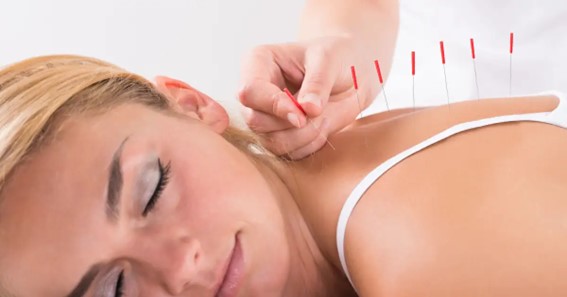Acupuncture is a traditional method of healing that originated in ancient China. It is a holistic treatment practice that involves the insertion of thin needles, through the skin, into specific points of the body to stimulate healing. These points in the body are believed to be connected to pathways called meridians, through which energy (Qi) flows. By stimulating these points, acupuncture helps restore the body’s natural balance and promotes healing.
Acupuncture is one of the oldest forms of physiotherapy, and its ultimate goal is to stimulate the body’s healing abilities to combat poor health conditions and their symptoms. This article will explore the Concept of Movement Physiotherapy acupuncture services as a treatment method for different health conditions.
How Does Acupuncture Work?
The therapeutic effects produced by acupuncture are believed to result from several mechanisms. Some of these mechanisms include:
Stimulating the central nervous system
Acupuncture activates nerve endings by sending signals to the brain to release neurotransmitters and hormones. When acupuncture needles are inserted into specific points of the body, sensory receptors under the skin and in the muscles are activated, sending signals to the brain and spinal cord. This act promotes pain relief, relaxation, and overall well-being.
Modulating energy flow
According to Traditional Chinese Medicine, disruptions and imbalances in the flow of Qi can lead to health problems. However, the body’s energy flow (Qi) can be regulated to restore balance to the body’s systems by targeting specific acupuncture points. Modern scientific research also explores how factors like neurochemical responses, neural modulation, and local tissue changes explain how acupuncture influences energy flow.
Promoting blood circulation
Acupuncture enhances blood flow to certain body areas through vasodilation, collateral circulation, enhancement of microcirculation, etc. Vasodilation refers to the widening of the blood cells. Acupuncture needles stimulate sensory receptors in the skin and underlying tissues to release nitric oxide and other vasodilators. Acupuncture also enhances the diameter and permeability of capillaries and develops alternative pathways for blood flow.
Triggering Natural Healing Responses
Acupuncture promotes self-repair and restoration by triggering the body’s natural healing responses. This form of physiotherapy stimulates the body’s innate healing mechanisms by producing collagen, increasing the production of natural pain-relieving substances, influencing the immune system, creating microtrauma, etc.
Click Here – Can You Be Found Guilty Even if Unaware of Breaking the Law?
What Conditions Can Acupuncture Treat?
Despite being a holistic treatment method, acupuncture can treat various health conditions at the Concept of movement physiotherapy. Acupuncture is an effective treatment method on its own. However, it may be combined with other treatment methods for optimal results. Some of these health conditions include:
- Pain management: Around the world, acupuncture is mainly known for relieving pain. As a form of physiotherapy in Barrie, acupuncture can relieve acute and chronic pain conditions such as migraines, tension headaches, back pain, neck pain, shoulder pain, osteoarthritis, fibromyalgia, and other chronic pain conditions. Acupuncture needles stimulate specific points that trigger the release of endorphins and natural pain-relieving substances. This modulates the pain signals in the central nervous system.
- Digestive disorders: Besides its pain-relieving ability, acupuncture can also effectively address various digestive disorders. Acupuncture addresses digestive problems such as irritable bowel syndrome (IBS), acid reflux, gastritis, hepatitis, hemorrhoids, and constipation, by regulating the functions of the digestive system.
- Musculoskeletal Disorders: Musculoskeletal disorders such as arthritis, back pain, Sciatica, Muscle cramping, Neck pain, Muscle pain, etc, come with a lot of pain. Acupuncture helps to alleviate the pain they cause, improve mobility, and support the body’s healing processes.
- Respiratory conditions: Acupuncture may relieve respiratory conditions such as allergies, asthma, sinusitis, allergic rhinitis, and bronchitis. Acupuncture in Barrie helps alleviate respiratory conditions’ symptoms, open the airways, and improve breathing, by reducing inflammation and modifying immune response.
- Gynecological issues: Acupuncture can be instrumental in addressing women’s health issues. Acupuncture as a treatment method can regulate hormonal balance, improve blood flow to reproductive organs, and reduce stress. Through these actions, health issues in women such as menstrual pain, infertility, menstrual irregularities, premenstrual syndrome (PMS), menopausal symptoms, etc can be addressed by acupuncture in Barrie, ON.
Is Acupuncture Safe?
When performed by trained and qualified practitioners in Barrie, ON, acupuncture is considered a safe practice. Compared to other medical procedures, acupuncture is very safe and low in risks. The major medical equipment used for acupuncture is acupuncture needles, regulated by the U.S. Food and Drug Administration (FDA). Acupuncturists are expected to use steel, sterile, and non-toxic acupuncture noodles. Acupuncture needles are also single-use and must be disposed of after use.
Acupuncture might not be suitable for everyone; therefore, your physiotherapist in Barrie may have to declare you eligible for acupuncture before you can undergo the procedure. After an acupuncture procedure, you might experience some mild and temporary side effects such as bruising/bleeding, slight pain, dizziness, lightheadedness, etc.
To ensure your safety during acupuncture, choose a licensed physiotherapy practitioner in Barrie, inform your acupuncturist about pre-existing medical conditions, and ensure that your acupuncture needles are properly sterilized.
